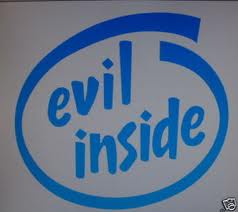 This just in from Tech Trader Daily, quoting Piper Jaffraychip analyst Gus Richard:
This just in from Tech Trader Daily, quoting Piper Jaffraychip analyst Gus Richard:
The whole issue for Qualcomm, based on Richard’s conversations with industry types, is that the company has started making its “MSM8960″ chip with Taiwan Semiconductor Manufacturing (TSM) only two to three quarters after TSM introduced its new “28-nanometer” chip-making technology. That’s faster than the five to six quarters Qualcomm waited for the last process technology, at 45 nanometers.
This is absolutely true. Qualcomm has not had the “wafer allocation” variable in past product launching equations thus the bumbling this time. I still question when CEO’s blame supplier shortages for missed quarterly expectations. Either way you slice it they screwed up. Let’s see what excuses the fabless semiconductor CEO’s use when 28nm capacity is no longer an issue. My favorite three are:
[LIST=1]
Mr. Richard thinks Qualcomm is seeking second and third sources of supply:
QCOM is using TSMC’s LP process based on a PolySiON gate stack. We believe Globalfoundries, Samsung and UMC have compatible processes. We are confident QCOM is working with GF and UMC and these sources will likely come up in Q4:12.
Clearly Mr. Richard missed my blog on just that last month:
UMC Wins Qualcomm 28nm Second Source Contract!
Mr Richard believes Qualcomm has the best product in baseband chips to which I agree:
While there are other LTE modems in the market, the power consumption of these products is unacceptably high. In addition, no other company offers the level of integration that QCOM provides in the MSM 8960 and its derivatives. In particular, QCOM’s main competitor, Intel, does not have an LTE modem. In addition, we believe Intel’s 22nm SoC process, 1271, will not be out until mid-2013.
More importantly Mr Richard shares my view on Intel’s recent assault on the fabless semiconductor ecosystem:
The use of fear uncertainty and doubt, FUD, in our view is a tactic used by companies when they are trying to obscure their own shortcomings. In our view, Intel’s narrative of exclusivity in process development and the end of the foundry model is disingenuous. So, the question is what is Intel trying to hide? We believe it is the following:
[LIST=1]
Absulutely. The only point that I would add is cost. The mobile SoC market is VERY cost sensitive and that is a market that Intel knows little about. As you may have read, even though the process technology scales with smaller die sizes, faster clock speeds, and lower power leakage, the cost may be exponentially higher, especially for Intel.
In summary, I really like this guy! Gus Richard has a graduate degree in Physics from Purdue and spent his first five of 25+ years working at a semiconductor mask shop in Silicon Valley before moving to the analyst side of the business. Lunch anytime Gus!
Share this post via:







Comments
17 Replies to “Piper Jaffray Chip Analyst Spanks Intel!”
You must register or log in to view/post comments.